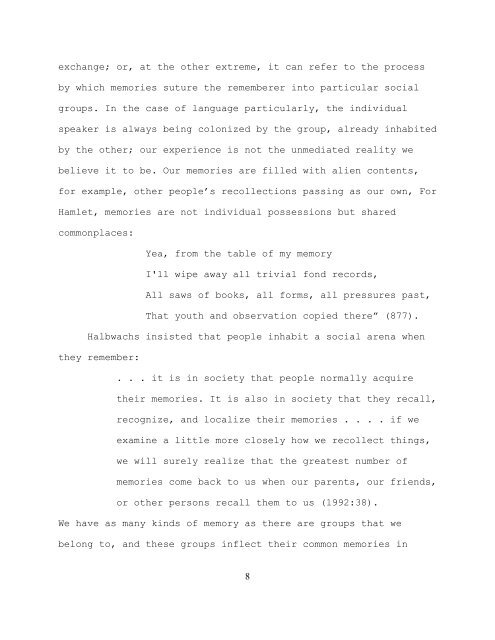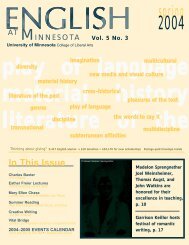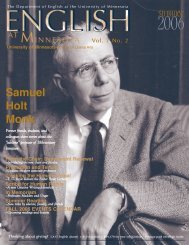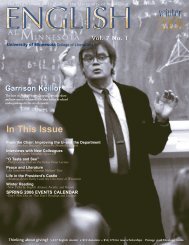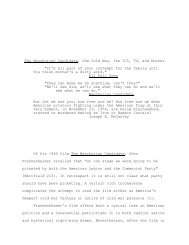Screen Memory - Department of English
Screen Memory - Department of English
Screen Memory - Department of English
Create successful ePaper yourself
Turn your PDF publications into a flip-book with our unique Google optimized e-Paper software.
exchange; or, at the other extreme, it can refer to the process<br />
by which memories suture the rememberer into particular social<br />
groups. In the case <strong>of</strong> language particularly, the individual<br />
speaker is always being colonized by the group, already inhabited<br />
by the other; our experience is not the unmediated reality we<br />
believe it to be. Our memories are filled with alien contents,<br />
for example, other people’s recollections passing as our own, For<br />
Hamlet, memories are not individual possessions but shared<br />
commonplaces:<br />
Yea, from the table <strong>of</strong> my memory<br />
I'll wipe away all trivial fond records,<br />
All saws <strong>of</strong> books, all forms, all pressures past,<br />
That youth and observation copied there” (877).<br />
Halbwachs insisted that people inhabit a social arena when<br />
they remember:<br />
. . . it is in society that people normally acquire<br />
their memories. It is also in society that they recall,<br />
recognize, and localize their memories . . . . if we<br />
examine a little more closely how we recollect things,<br />
we will surely realize that the greatest number <strong>of</strong><br />
memories come back to us when our parents, our friends,<br />
or other persons recall them to us (1992:38).<br />
We have as many kinds <strong>of</strong> memory as there are groups that we<br />
belong to, and these groups inflect their common memories in<br />
8


